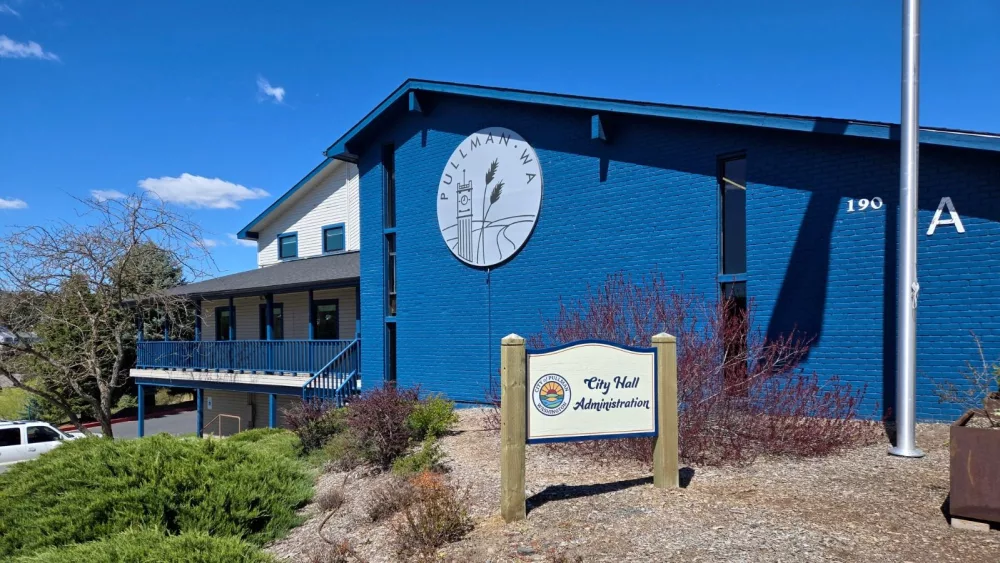(The Center Square) – The Washington State Department of Corrections website states that social connections maintained during incarceration are a valuable part of helping prisoners with successful reentry into society. However, the high communication cost often makes it difficult for many families to stay in touch with a loved one behind bars, says the Prison Policy Initiative.
Wanda Bertram, communication strategist for PPI, said many prisoners are from lower-income families struggling to cover basic household costs. So, when a loved one ends up behind bars, these families are often forced into financial hardship and debt to stay in touch.
“The cost may not seem like much at first glance but, over weeks, months and years, it adds up,” she said.
Karen Cain, who had two sons at Oregon State Penitentiary, spent $70,000 on phone calls alone during their incarceration. Trevor Walraven, then 14, and his older brother, Joshua Cain, 18, were convicted of murder in 1998 and released in 2016 and 2020, respectively.
“It was a huge financial burden to stay in touch and I went without all kinds of things in order to come up with the money for phone calls because they were invaluable for all of us,” she said.
After their father died about mid-way through the boys’ sentences, Cain said it became even more difficult to spare money for communication. However, she found ways to make the phone calls happen because the connection alleviated some of her worries and provided her sons with support.
She said Trevor and Joshua both worked at some of the better-paying jobs inside, often working 80 to 100 hours per week for a $150 monthly paycheck. Although they also put money in the phone account, Karen wanted their earnings to be used on hygiene products not provided by the prison and to round out the inadequate diet with food from the state-run commissary.
To add to her financial woes, the state charged Cain child support for housing Trevor, who had been tried and convicted as an adult.
“I told them to make up their minds, they couldn’t have it both ways,” she said.
It can be difficult for people to empathize with prisoners, but they are still human beings and valuable to their families, explained Cain to The Center Square.
For that reason, she said most families make sacrifices to cover the $2.40 cost of a 15-minute phone call in Oregon, in addition to the 25 cents per email, the $5.88 for a 30-minute video visit or traveling for an in-person visit.
“I didn’t commit a crime, but the system is set up to penalize families also,” she said.
Bertram said encouraging strong family relationships contributes to better mental health for the prisoner and improves public safety. Decades of research shows that prisoners released to a supportive environment are at lower risk of committing new crimes.
Studies in Florida and Minnesota found that, among 7,000 people released from state prisons, each visit the inmate had received lowered the odds of two-year recidivism by 3.8%. Among people who received visits during incarceration, felony re-convictions were 13% lower, and revocations for technical parole violations were 25% lower.
An Iowa research project concluded that misconduct among prisoners who had one visit per month was reduced by 14%.
Cain believes that the ability of Trevor and Joshua to get the support they needed made all the difference in their ability to rebuild a life. Both furthered their education in prison and built successful careers upon re-entering the free world.
After evaluating existing data, PPI concluded that 80% or more prisoners use phone calls as the primary way to connect with family and friends.
Sometimes the cost of a phone call from a county jail is even more expensive than prison, so the journey of incarceration gets a rocky start, said Bertram.
For example, the family of someone locked up in a Washington jail pays $2.89 for a 15-minute phone call. A prison phone call is 11 cents per minute plus taxes and transaction fees.
“Jails and prisons often choose their telecom providers on the basis of which company will pay the facility the most money in kickbacks,” explained Bertram.
She said jails in some states charge families over 20 times more than necessary. Arkansas and Maine share the highest phone rate at $3.15 for a 15-minute call.
PPI reports that 552 county jails charge higher in-state phone rates than the FCC allows for out-of-state calls. Seventeen of those jails are in Washington State, but Minnesota and Arkansas rank highest, with 59 jails charging higher in-state rates.
Regulatory action by the Federal Communications Commission, state legislators and strong advocacy campaigns have reduced rates for phone calls from prisons and jails over the past 10 years, but it is not enough, said Bertram.
In Oregon, a coalition of reform groups convinced legislators to sponsor a bill that would have made calls, video visits and messages free, but the effort ultimately collapsed.
PPI wants to see more progress on that front in every state.
As a result of continuing advocacy for “phone justice,” Bertram said some cities and counties now charge just 1 or 2 cents a minute for calls.
PPI recommends that state legislators set caps on ancillary fees, restrict prisons and jails from accepting millions in kickbacks from telecom providers and require governments that incarcerate people to also pay communication costs.




